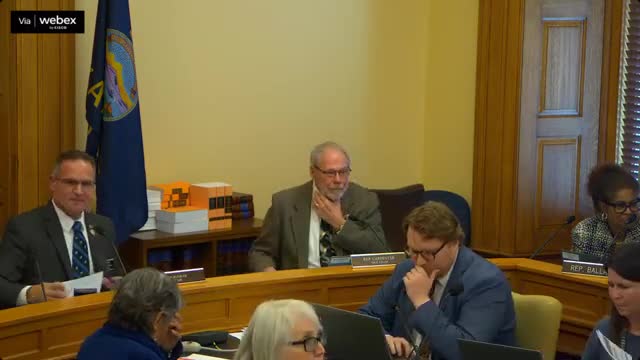KDHE officials brief committee on public health programs, lab move, TB response and Medicaid priorities including $17 million maternal health grant
Get AI-powered insights, summaries, and transcripts
Subscribe
Summary
Janet Stanek, KDHE secretary, and deputies Ashley Goss and Christine Osterland briefed the Committee on Social Services Budget on KDHE organization, public‑health programs, the lab relocation and generator delay, a Wyandotte County TB response, KanCare 3.0 implementation, and recent federal grants including a $17 million maternal and infant health award.
Janet Stanek, secretary of the Kansas Department of Health and Environment (KDHE), and deputies Ashley Goss (Division of Public Health) and Christine Osterland (Division of Health Care Finance and state Medicaid director) provided the committee an overview of KDHE organization, public‑health programs, laboratory relocation, the tuberculosis response, and Medicaid priorities.
Stanek summarized the agency structure and priorities: KDHE has three divisions (public health, the Division of Health Care Finance/Medicaid, and environment) and focuses on recruiting and retaining staff, regulatory compliance, partner engagement, and program integration across public health and Medicaid.
Deputy Secretary Ashley Goss outlined public health bureaus and programs, including community health systems, facilities and licensing (CMS‑required surveys), epidemiology and public health informatics (data and dashboards), the Bureau of Oral Health (small program led by the state dentist), the Bureau of Family Health (including WIC and child care licensing), and the new Kansas Health and Environmental Lab. Goss said the lab move is proceeding but the BSL‑3 lab cannot be fully operational until a generator arrives; "Generator was ordered over a year ago ... it should be here towards the end of the month," she told the committee. Goss also reported KDHE reaccreditation by the Public Health Accreditation Board and that the agency has been working on a Wyandotte County tuberculosis outbreak with CDC assistance.
Deputy Secretary Christine Osterland provided a Medicaid overview. She said Kansas serves 440,812 people in Medicaid and CHIP combined (data point dated as of end of October in presentation): roughly 361,000 in Medicaid, about 61,000 in CHIP, and approximately 16,000 in a program labeled MCHIP for young children up to age 5. She reviewed eligibility rules (covered groups plus financial thresholds), explained Kansas is a managed care state with roughly 95% of Medicaid populations enrolled in managed care, and named the three contracted managed care organizations: Healthy Blue, Sunflower Health Plan, and UnitedHealthcare. Osterland said KanCare 3.0 contracts went live recently and the department was on "day 14 of go live" during the meeting; she anticipated ongoing implementation work and enhanced monitoring.
Osterland and Goss also described recent federal grant awards and projects: a maternal and infant health grant reported in the meeting as roughly $17,000,000 awarded over 10 years (Osterland noted the award and the period when Representative Barbara Ballard asked about duration), and a $2,000,000 school-based services grant to expand Medicaid services to children in school settings. KDHE and Medicaid also noted work on a rate study, a new data and analytics bureau, and planned public dashboards for MCO performance and other Medicaid data.
Representative Angela Steens asked whether Medicaid clients may select their managed care organization; Osterland explained members have a choice period, can be auto-assigned if they do not choose, and have a 90‑day window to change their assigned plan. Osterland described the competitive procurement process that led to the current three MCOs and noted some provider networks and value‑added benefits vary among plans.
Ending: KDHE leaders told the committee they would return with more program‑level detail and fiscal estimates as needed and that staff would assist the committee with budget and legislative follow-up.
